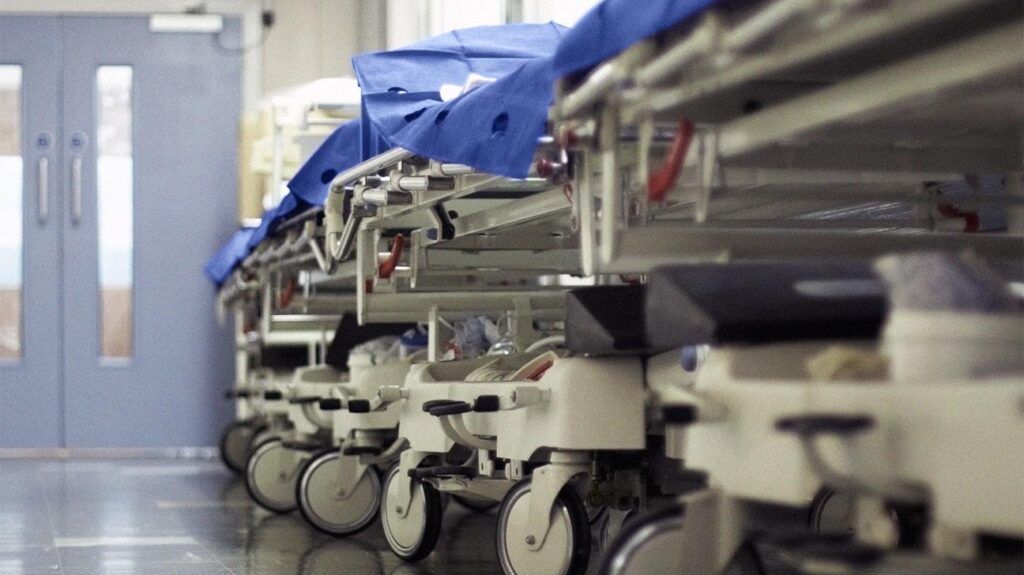Proctectomy is a surgical procedure to remove part or all of the rectum. It is a treatment option for people with rectal cancer, inflammatory bowel diseases, or precancerous growths.
Together, colon and rectal cancers are the
Learn more about proctectomy, including risks and what to expect before, during, and after the procedure.

Proctectomy is a surgical procedure to remove some or all of the rectum.
The main goal of a proctectomy is to prevent or treat severe medical conditions, including:
- Rectal cancer: Proctectomy is crucial for those diagnosed with rectal cancer. Removing the cancerous parts of the rectum is necessary to stop the disease from spreading.
- Inflammatory bowel disease (IBD): Individuals with conditions such as ulcerative colitis or Crohn’s disease might require proctectomy when their symptoms become difficult to manage with other treatments. This surgery can help ease pain, bleeding, and severe inflammation, improving a person’s quality of life.
- Polyps and precancerous lesions: Some people
may have a proctectomy to take out precancerous growths or polyps in the colon or rectum, lowering the risk of cancer.
There are risks associated with proctectomy. It is best for an individual to discuss the procedure’s potential benefits, risks, and complications with a healthcare professional.
Some risks and complications
- Infection: There is a risk of infection after surgery, either at the surgical site or inside the belly.
- Bleeding: Performing surgery on the colon or rectum can lead to bleeding, which may require further treatment.
- Leakage: Sometimes, the connections between the healthy parts of the digestive system and the newly fixed colon can leak, causing complications.
- Changes in bowel habits: After proctectomy, people may notice changes in their bowel movements, such as diarrhea or more frequent trips to the bathroom.
- Anesthesia risks: As with any surgery, anesthesia can have risks, including allergies and complications such as pneumonia or blood clots.
- Pain: After surgery, individuals may experience discomfort, requiring pain medication for a few days.
- Adhesions: Scar tissue may develop in the abdomen (belly) that can cause organs or tissues to stick together, known as adhesions. In rare cases, adhesions can cause the intestines to twist up and block the bowel, which may require further surgery.
Before a proctectomy, a person will undergo a complete evaluation by a medical professional. This will involve discussing medical history, receiving guidance on preparing for the procedure, and undergoing various tests.
Tests may include:
The medical professional may also advise people to make some lifestyle changes, such as:
- quitting smoking
- reducing alcohol consumption
- following a specific diet
- drinking clear liquids only
Doctors typically perform proctectomies in a hospital.
Details of what to expect during the surgery are as follows:
- Anesthesia: General anesthesia will cause the patient to be unconscious and pain free during the surgery.
- Incision: The surgeon makes a cut in the belly to reach the colon or rectum.
- Removal: The surgeon removes the damaged part of the rectum. They may use the following techniques:
- low anterior resection (LAR) — if more of the rectum or colon needs to be removed
abdominoperineal resection (APR) — if the affected area is large and close to the anal opening
- Reconstruction: After removal, the surgeon reconnects the healthy parts of the digestive system, allowing it to work as it should. This process is called anastomosis.
- Closing up: The surgeon closes the incision with stitches or staples and puts on bandages.
The surgery can last several hours, but this does depend on how complex a person’s situation is. Afterward, individuals will require close monitoring in the recovery room.
Recovering from proctectomy can be challenging, but this period is crucial for a successful outcome.
During their recovery, a person can expect the following:
- Hospital stay: Patients might stay in the hospital for a few days to a week, but this can vary.
- Pain management: Individuals will likely experience pain and discomfort, but their healthcare team will provide medication to help manage this.
- Eating changes: A limited diet initially allows the digestive system to heal. A person’s diet can slowly return to normal as they recover.
- Bowel changes: People may notice changes in their bowel movements or frequency. This should improve with time.
- Caring for the incision: Taking care of the surgical incision is important for helping prevent infection and promoting healing. A healthcare team will explain how to care for the incision properly.
- Physical activity: There may be limitations on physical activity at first. However, a healthcare professional can suggest exercises and activities as strength increases with time.
- Follow-up care: After leaving the hospital, patients will have regular appointments with a healthcare team to check progress, address concerns, and adjust a recovery plan if necessary.
When deciding whether to have a proctectomy, a few key factors to consider include:
- the procedure’s medical necessity
- a second opinion
- the long-term impact
- effects on quality of life
- a person’s support system
- their recovery plan
- its lifestyle impact
If a person has questions or concerns about any of the factors above, it is best to speak with a doctor or specialist.
A proctectomy is a surgery that removes parts of the rectum to help prevent or treat severe medical conditions, such as rectal cancer and inflammatory bowel diseases.
Proctectomy comes with some risks, including infection, bleeding, and pain. Proper preparation, knowing what to expect during and after the surgery, and a well-defined recovery plan are key to a successful proctectomy. A person can speak with a healthcare professional about whether proctectomy may be a suitable treatment option for their condition.
